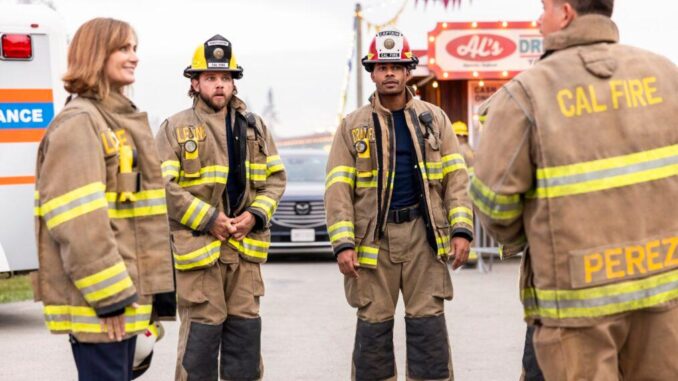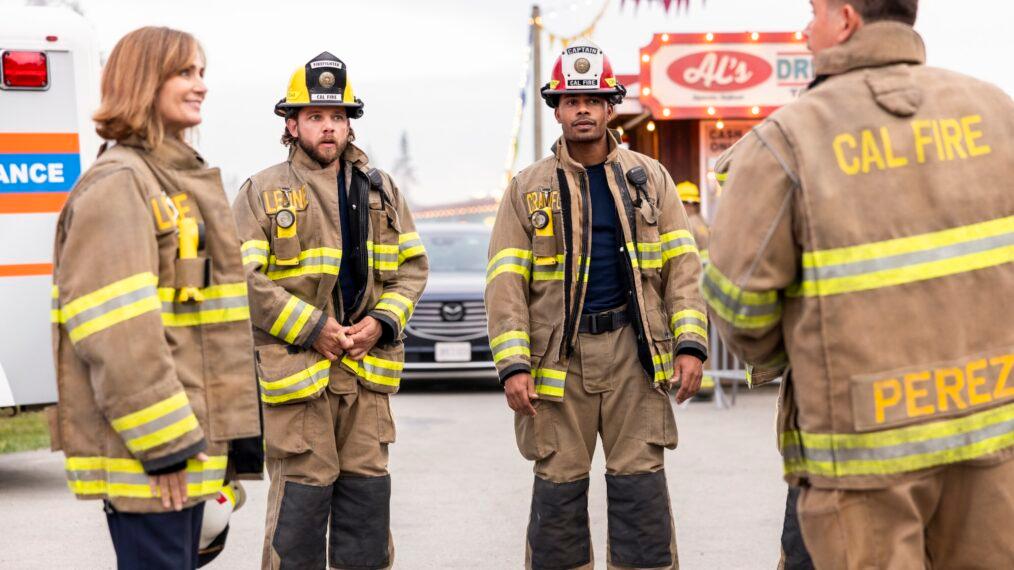
When the Fire Shifted: Gratitude in the Crucible of Change
The air hung thick with the scent of pine needles and diesel as Jordan Calloway, a veteran firefighter with calloused hands and eyes that reflected a thousand blazes, stood in the hushed confines of the station. The news had just broken: a major reshuffling of battalion chiefs was underway. Whispers rippled through the ranks, a mixture of anxiety and speculation painting the faces of his crew. For Jordan, the news initially felt like another unnecessary tremor in a world already volatile. But what started as a flicker of unease soon blossomed into something profound: a deep, abiding gratitude.
Jordan, a man forged in the crucible of countless infernos, had always been one for routine. He thrived on the predictability of his days, the camaraderie of his crew, and the reassuring consistency of his leadership. Battalion Chief Miller, a gruff but fair leader, had been a constant in his career for years. He knew Miller’s methods, his expectations, and even his quirks. The thought of facing a new leadership style, a new set of priorities, filled him with a trepidation that he normally reserved for approaching a collapsed building.
He wasn’t alone. Many of his colleagues felt the same way. The station was a tightly knit family, and the fear of disrupting that dynamic loomed large. They worried about the potential for clashes in personalities, the potential for miscommunication, and the potential for losing the sense of cohesion that had always allowed them to function as a single, well-oiled machine under pressure.
However, as the initial shock subsided, Jordan began to reflect. He considered the news with a new perspective, one shaped by years of navigating chaos and embracing the unexpected. He realized that while Chief Miller had provided a stable foundation, perhaps the station had grown complacent. They had become comfortable in their routines, relying on familiar strategies and occasionally overlooking opportunities for improvement.
The arrival of Battalion Chief Reynolds, a dynamic and progressive leader, forced them to re-evaluate everything. Reynolds brought with her a fresh perspective, a thirst for innovation, and a relentless dedication to refining their techniques. She introduced new training exercises, encouraged them to explore cutting-edge technology, and fostered an environment of open communication and collaboration.
Initially, the shift was jarring. The crew, accustomed to Miller’s traditional approach, struggled to adapt to Reynolds’ emphasis on data analysis and strategic planning. But as they began to witness the tangible benefits of these changes, their resistance gradually dissipated. They saw how the new techniques improved their efficiency, reduced their risk exposure, and ultimately, made them better firefighters.
Jordan, in particular, found himself embracing the challenge. He discovered a renewed sense of purpose in mastering new skills and adapting to a new leadership style. He learned to appreciate Reynolds’ emphasis on teamwork and her willingness to listen to his input. He realized that he had been stagnating under the old system, and that this shake-up had jolted him out of his complacency, forcing him to grow and evolve.
He also began to appreciate the value of adaptability and resilience. He understood that in the unpredictable world of firefighting, change was inevitable, and that the ability to embrace it was essential for survival. He realized that the discomfort and uncertainty that had initially accompanied the leadership change had ultimately led to positive growth, both individually and collectively.
The battalion chief shake-up, initially perceived as a threat, had ultimately become a catalyst for positive change. It had forced them to re-evaluate their processes, embrace innovation, and strengthen their teamwork. It had reminded them that even in the face of adversity, there was always an opportunity for growth and improvement.
Now, standing in the station, surrounded by his newly invigorated crew, Jordan felt a profound sense of gratitude. He was grateful for the leadership of Chief Reynolds, who had challenged them to be better. He was grateful for his crew, who had embraced the change with resilience and determination. And he was grateful for the fire service, which had instilled in him the values of adaptability, teamwork, and the unwavering pursuit of excellence. The shift in battalion chiefs had been more than just a reshuffling of personnel; it had been a fire that had burned away complacency and forged a stronger, more adaptable, and ultimately more grateful team. It had taught Jordan Calloway that sometimes, the most profound growth comes from the most unexpected changes, and that gratitude can be found even in the heart of the most turbulent fires.

